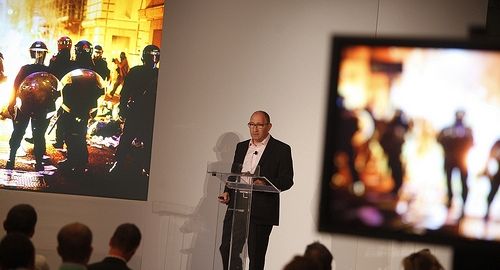All these dynamics at play, however, are in fact GOOD NEWS for the PR profession. We get complexity and the multiple stakeholder universe and always have. For many years, we have grappled with the inter‐dependency of, say, Corporate Reputation and Public Affairs – and their relationship, at a most basic level, with a company’s license to operate. We have long understood the role of the NGO community in shaping corporate thinking and policy – and the new social contract that has emerged between business, government, NGOs, and the wider civic society. We have come to understand that we can no longer sell, sell, sell branded consumer goods without a responsible thought (and action) around that brand’s environmental footprint and its ethical supply chain.
So why is this a point of competitive advantage for the PR community? For a start, the ad agencies just don’t get it. Far from celebrating complexity, they are trapped in a legacy world of reductive thinking. They seek to explain the complex through the simple – the short film or the clever tag‐line. In today’s complex world, this exquisite minimalism is no longer enough.
The Digital guys don’t ‘get it’ either. They are, in my view, obsessed with technology, eyeballs and channels – an amusing paradox given that these were ones kings of the wild frontier. As with the ad guys, they lack the content and the gravitas in some of the areas that are so central to inter‐dependent thinking – the Public Affairs and Civic Society dimensions, for example. This content shortfall extends to the management consultants also: their flow charts speak to process; their outreach is limited; their narratives incomplete; their contacts restricted.
Hence our moment in time: the chance to lead. To do this, and to be truly trusted advisors, we must shift from the old model of Public Relations to the new ecosystem of Public Engagement. That’s what we, at Edelman are calling it. Public Engagement is about meaningful participation in a continuous conversation. MEANINGFUL. CONTINUOUS PARTICIPATION.
This shift places new burdens upon us: it demands we hire different people; take different approaches; develop bigger, better programmes and platforms; acquire different and diverse skills; and adopt different behaviours. We, ourselves, must embrace the notion of radical transparency. We must rid ourselves of the dreadful monickers of spin. We must distinguish between the publicists and the consultants and be more disciplined about how we define ourselves. We must shun those who flirt with dubious ethics and dubious political regimes – and revisit, once again, the key issues of measurement and ‘value’.
Trust in PR (or PE) does not derive from counting press clippings or by figuring out what ‘value’ might look like in advertising equivalence terms. We must make ourselves accountable for business outcomes – building deeper communities; increasing rust; changing behaviours; delivering commercial success. New social media analytics enable us to rapidly distil actionable intelligence and to directly track our work back to programme objectives – measuring engagement, understanding trust and assessing impact in a timely and linear manner.
Above all, we must follow the same rules of what builds trust in any business or brand: grqualityd services – the stuff we are meant to offer our clients everyday; Open and transparent communications – th way weshould, fom now, always work; and a company I can trust – ensuring that trust itself is part of our professional DNA. It is only when we can apply these principles to our own businesses that we, ourselves can be trusted.
The prize is, in many ways, the Holy Grail that we have sought for so long. We can – and should – operate as a strategic management function. We can – and should – be the discipline of choice for today’s leaders, business or governmental. We know how to catalyze employees. We understand the art of co‐creating products and services with citizen‐consumers; we get the need to co‐operate with civil society, to negotiate with regulators and to meet the expectations (still present) of financial markets. We can – and will – build new narratives that not only make sense of this complex world, but ones which serve the interest of all stakeholders, for common good.
Make no mistake. The perpetual fragility of Trust lies before us. Leadership – for us as it is for our clients – in a low-trust era is hard. It is conditional. But it is not impossible. We, the PR industry, should rise to the challenge. We should trust ourselves to do it.
Kaynak
Robert Phillips
ICCO 2011 Zirvesi
http://www.halklailiskiler.com/admin/index.php?view=add_page









